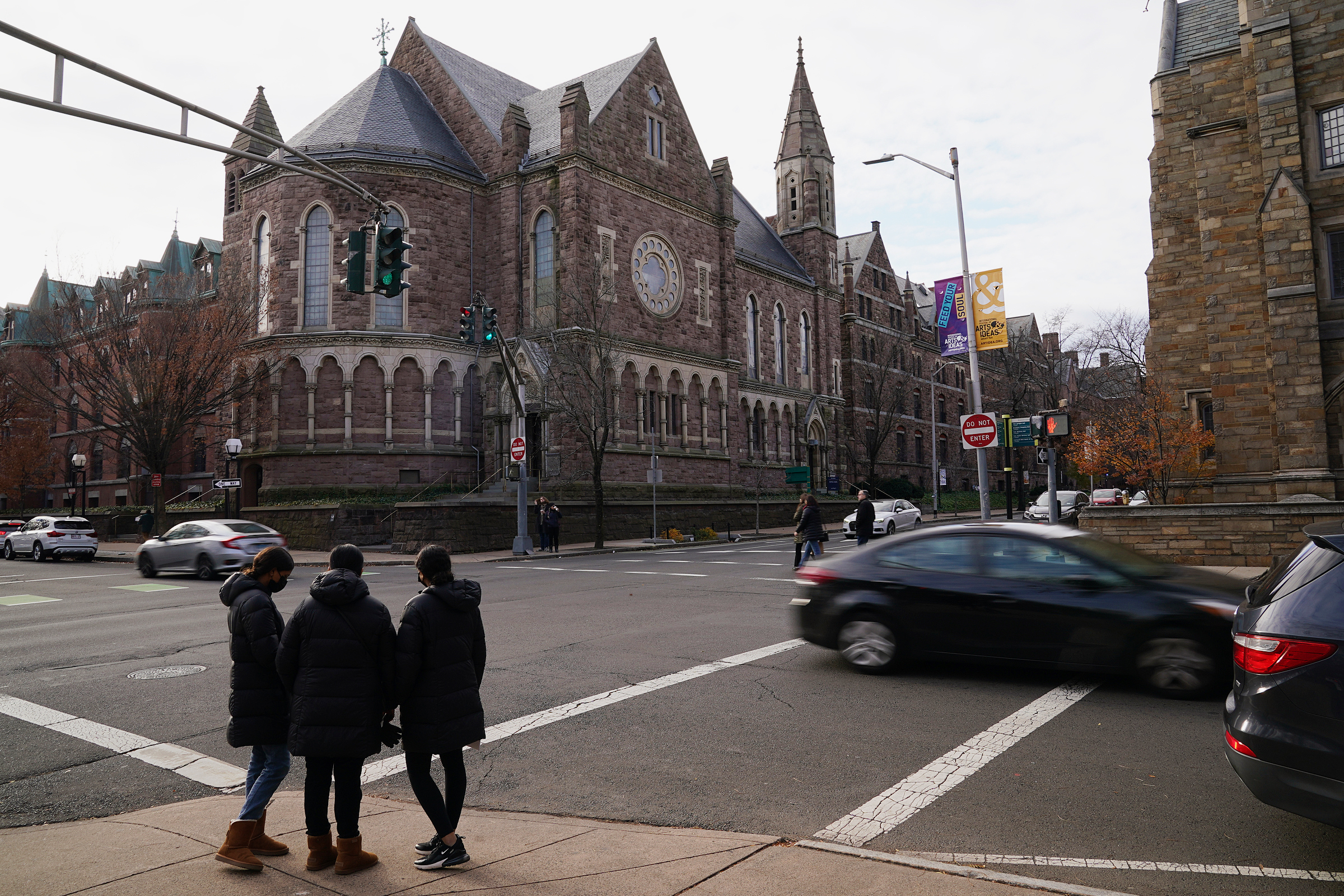
The News spoke with university religious leaders about the outcome of the presidential election and what lies ahead.
Ada Perlman
11:18 PM, November 6, 2024
Staff reporter

Tim Tai, senior photographer
The times the country is going through require a lot of “discernment,” according to the Rev. William J. Barber II.
In an interview Wednesday with the News, he expressed concern about how newly elected President Donald Trump’s policies do not align with the moral values he lives by.
“We don’t have the luxury of stopping,” Barber said.
Barber, one of America’s most famous religious leadersdirects the Center for Public Theology & Public Policy at Yale Divinity School. The center aims to equip future leaders with a moral framework.
He has worked and served in pastoral leadership and public ministry for thirty years delivered keynote addresses at hundreds of national conferences, including the 2016 Democratic National Convention and the 59th Inaugural Prayer Service for President Joe Biden and Vice President Kamala Harris.
“We do not believe that God is a Democrat or a Republican. We must look at it through the lens of our deepest moral values,” Barber said. “Our deepest moral values set forth in the scriptures are justice and love, truth and mercy, and regardless of how our nation votes, from a moral and theological standpoint, a majority vote does not mean equality.”
Barber expressed disappointment that American politics has become more focused on the rhetoric of candidates than on addressing the “deeper moral questions.”
He quoted Isaiah 10 as one of the 2000 scriptures in the Bible that inform his theology that says:Woe to those who make unjust laws, to those who issue oppressive decrees, to deprive the poor of their rights, and to withhold justice from the oppressed of my people, making prey to widows and robbing the orphans.”
Criticizing policies from a theological perspective
According to Barber, the role of theology is to be a critic of the state and to ask how government policies might reflect the values of justice.
“When you place your hand on that Bible, Republican or Democrat, Independent, male or female, you swear to establish justice. You swear that you will promote the common defense, promote the general welfare, and insure domestic tranquility,” Barber said. “You don’t swear that you will create an unjust policy. You don’t swear to sow division.”
Trump has received support from many Christian nationalists, which Barber calls a “form of modern heresy.” Barber criticized Trump’s minimum wage policies and the president-elect’s use of xenophobic and racial language.
Jonathan Wilson-Hartgrove, another religious leader at the Center for Public Theology & Public Policy, sees Trump’s victory as a “triumph” of Christian nationalism tactics. Wilson-Hartgrove sees his role as a religious leader as essential at this time.
“At a time when Christianity has been weaponized by a political movement, my job as a religious leader is to cultivate communities of faith where Jesus’ radical love ethic inspires people to work with their neighbors for justice,” Wilson-Hartgrove wrote .
Hope for the future
The Center for Public Theology and Public Policy is hosting a Nov. 18 workshop on “moral fusion organizing,” which Wilson-Hartgrove described as “a tradition practiced by people who refused to give up even when it seemed like they were losing ground politically.”
Rabbi Alex Ozar, campus rabbi of the Slifka Center for Jewish Life, also expressed hope and emphasized the desire for people to come together and talk to each other after the election.
“I hope we will all continue to learn how to really talk to each other, work through our differences, and truly hold each other accountable,” Ozar wrote. “We need to build trust, one mutually vulnerable conversation at a time.”
Wilson-Hartgrove believes it’s important to be honest about disappointments because disappointment can refocus “shared hopes,” he said.
Students need to study, “worry” and “turn all of that into ongoing action,” Barber said.
The Center for Public Theology and Public Policy was founded in 2022.
ADA PERLMAN
Ada Perlman reports on religious life at Yale. She is a sophomore at Pierson College.
Leave a Reply